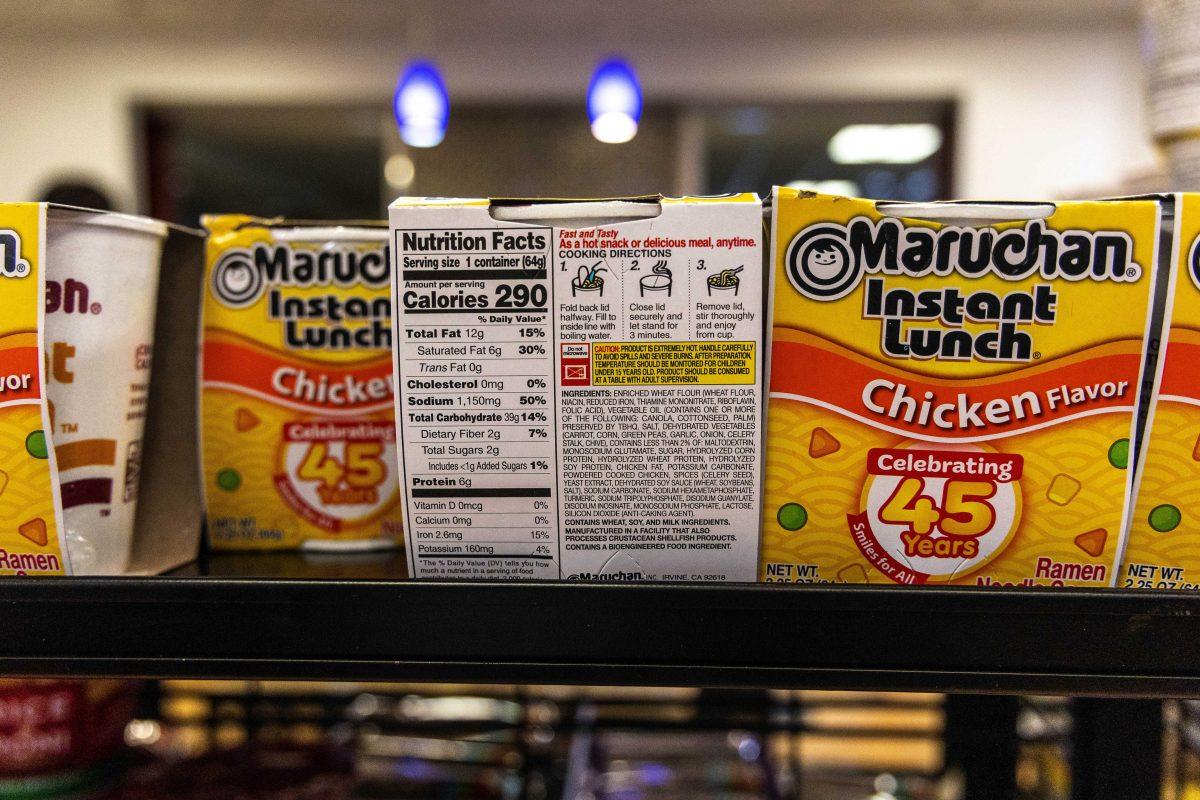I despise the modern stereotypes surrounding college life: students with non-existent sleep schedules, hardly ever drinking water, and subsisting entirely off of that hackneyed hallmark of 25 cent ramen noodles.
I hate these images for two reasons. First, they help normalize a lifestyle that is deeply unhealthy and self-destructive. More than that, though, I hate them because they’re a relatively accurate description of how many of us actually live.
Maybe you disagree with me. Maybe you’ve been an outlier or an athlete during your time at school, working hard to eat healthy, stay hydrated and keep your eight-hour crash fixed between the hours of 11 p.m. and 7 a.m. If so, I applaud you. But how are the rest of us faring?
I asked English sophomore Phoenix Marshall.
“This granola bar will be the first thing I’m eating today, and it’s like [3 p.m.],” she said. “Just because I’m in class all day, you know? I don’t have a lot of time to eat.”
When I asked psychology freshman Abby Hinsley how much water she drinks on a daily basis, she simply remarked, “None.”
Myles Ragas, a music education freshman, has started college with late nights.
“On weekdays I’ll go to sleep at like 2:30 [a.m.] and then I wake up at 7:30 [a.m.],” he said. “But on weekends, I’ll go to sleep at like 5 a.m. and then wake up at 1 p.m.”
Take the time to consider your own responses to these questions. While you do, consider the following.
A study published in the National Library of Medicine found that “being dehydrated by just 2% impairs performance in tasks that require attention, psychomotor, and immediate memory skills.”
A study published in ScienceDirect said that changing the time you go to sleep throughout the week can substantially weaken your cognitive functioning, even if you still get eight hours every night.
Similar side effects exist for me and my ramen-loving friends. The lack of variety and essential nutrients in the stereotypical college diet has been shown to directly impede brain function related to learning and memory.
If you are a college student skimping on water intake, regularly changing the times you go to sleep or making do with one or two daily meals of ramen or pizza, these are only the beginning of the issues that lie in wait.
Have you ever spent a week or two in a brain fog? Have there been periods of time when your ability to focus and remember feels strangely impeded? Maybe you have that infamous side effect of COVID-19 — or maybe you haven’t drank anything but beer and Dr. Pepper for six days.
Feeling oddly tired and sluggish despite getting a full eight hours of sleep? Have you eaten anything that contains a substantial amount of Vitamin E, ever?
Don’t mistake my critical words for judgment — I’ve pulled God-knows how many all-nighters and eaten more ramen than any mortal man should dare.
Instead, I’m asking you a question as your peer and fellow student: Are the activities and lifestyles we’ve accepted as normal as inconsequential as they seem? Or are we allowing ourselves to embrace a path that measurably lowers our academic performance and quality of life — not just in some distant future, but right now?
No one can live a perfectly healthy life all the time, of course. Sometimes we’re running late on our assignments and have to stay up late to get them done. Maintaining a healthy diet is difficult and often expensive.
Regardless, we should look for opportunities to live healthier, and that can be as easy as carrying a big water bottle with you to sip throughout the day.
I promise, you won’t believe how much better it makes you feel.
Noah McKinney is a 21-year-old English and history major from Houston, Texas.





